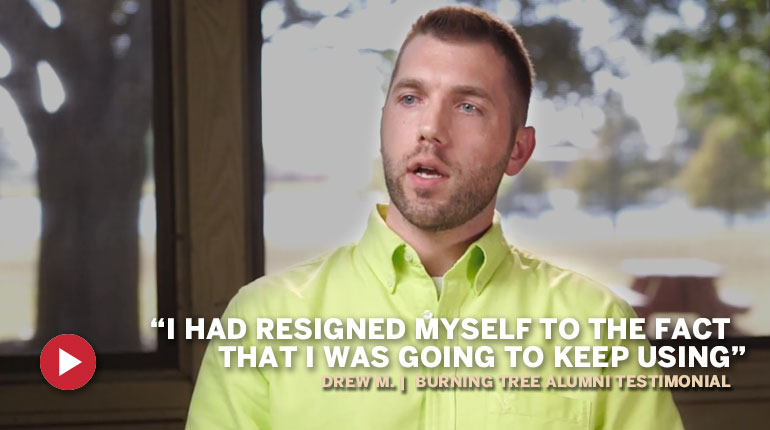Alumni Drew M. Shares His Authentic Experience with Burning Tree Ranch
Video Summary:
This video features a powerful testimonial from Burning Tree Ranch alumnus Drew M., now sober for about ten years. He candidly shares how his life progressed from a state of hopeless addiction to a life of fulfilling recovery. He recounts his initial resignation to a destructive lifestyle and the pivotal moment when he was caught, leading to a sense of relief and an opportunity for change.
Drew tells how Burning Tree’s long-term approach was crucial in addressing the deep-rooted issues underlying his addiction, and how the extended duration of the program allowed him to address mental health & other deeply ingrained behaviors contributing to his addiction.
He now works with individuals in recovery to help others find their way out of addiction, and describes how his life and relationships have transformed completely since graduating from the program.
Read: Video Transcript
I pretty much resigned myself to the fact that I was gonna keep using, and that was just gonna be the way it was, you know? And I didn’t know when that was gonna end. I knew that I was on a road to destruction. I knew it – and there was no getting off, you know what I mean? And there was no way out, as far as I could tell, and I got caught, which happens. Eventually you get caught.
And for the first time, I felt relief. Every other time, it was ‘What lie can I tell? How can I get out of this? What can I do to get out of this one more time?’ And for the first time, I felt relief.
My family gave me the option: ‘You can be homeless, or you can go to Burning Tree.’
And I actually knew what Burning Tree was. I had watched a person that I cared deeply about have their life saved by this program. And so when the time came, I knew what I was getting into. And what I knew was I had watched a person who was just like me change completely from being hopeless to being full of life. And I wanted it; I wanted it bad.
I knew it was going to be easy, but the hard part was over. The hard part was being willing to come here and say, ‘I can’t do this anymore,’ and accept the help that was given to me here.
The reality is today, almost eight years later, I go home after spending all day with people who were just like me but just at a different point in the journey. I get to tell them how to get out. I get to show them what I was shown, which is there is a way out.
Not only a way out, but recovery is not to be endured – it’s to be enjoyed.
I go home at the end of the day after working with these guys, getting in the trenches with them and showing them the way out. I have my daughter greet me at the door. I have a son – nine months old – that I get to pick up and carry around the house, right? I have a wife that I love and that loves me. I have parents that thought their son was gone forever; they live right down the road.
We have family dinners. I’m not sitting at those dinners wondering when they’re over so I can get back to doing what I want to do. I enjoy life.
The thing that people seem to have the biggest issue with, from a client’s perspective, is the length of stay. It is the biggest asset, absolutely.
Because what I had was over ten years if I’m looking at it realistically – of behaviors, thought processes, and belief systems that were so ingrained that just not using for three months, six months, or whatever, there’s no way that’s going to change.
So what I got to do was have the time that it took to really get down to what was going on. Why was I doing what I was doing? I thought that the drugs and the alcohol were the problem, and they weren’t. They were a symptom – a symptom of something deeper. That’s what I got to learn here. I got to learn not only what was really going on, but what to do about it. A foundation for life, not just sobriety – for life.





